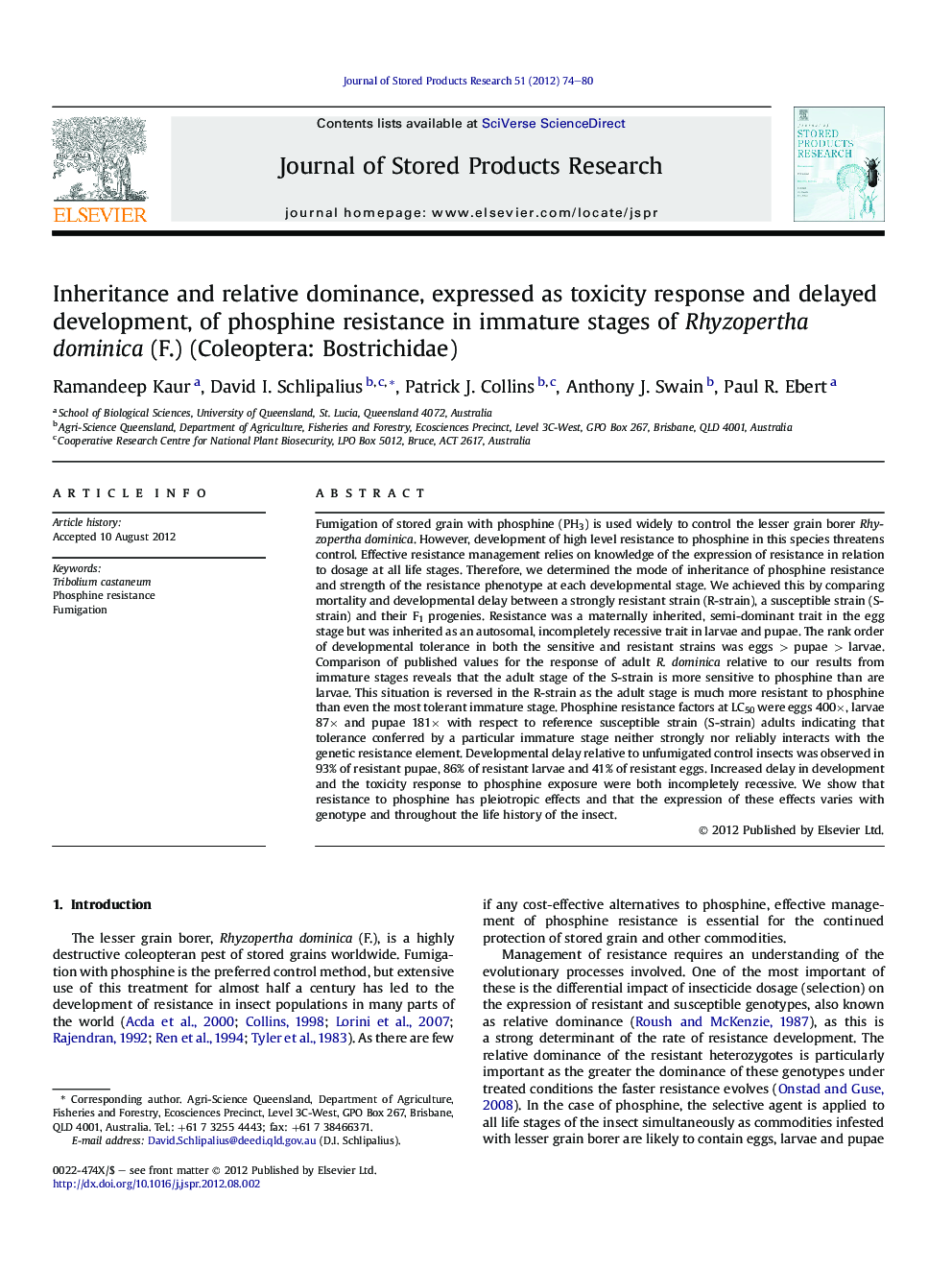| Article ID | Journal | Published Year | Pages | File Type |
|---|---|---|---|---|
| 4517167 | Journal of Stored Products Research | 2012 | 7 Pages |
Fumigation of stored grain with phosphine (PH3) is used widely to control the lesser grain borer Rhyzopertha dominica. However, development of high level resistance to phosphine in this species threatens control. Effective resistance management relies on knowledge of the expression of resistance in relation to dosage at all life stages. Therefore, we determined the mode of inheritance of phosphine resistance and strength of the resistance phenotype at each developmental stage. We achieved this by comparing mortality and developmental delay between a strongly resistant strain (R-strain), a susceptible strain (S-strain) and their F1 progenies. Resistance was a maternally inherited, semi-dominant trait in the egg stage but was inherited as an autosomal, incompletely recessive trait in larvae and pupae. The rank order of developmental tolerance in both the sensitive and resistant strains was eggs > pupae > larvae. Comparison of published values for the response of adult R. dominica relative to our results from immature stages reveals that the adult stage of the S-strain is more sensitive to phosphine than are larvae. This situation is reversed in the R-strain as the adult stage is much more resistant to phosphine than even the most tolerant immature stage. Phosphine resistance factors at LC50 were eggs 400×, larvae 87× and pupae 181× with respect to reference susceptible strain (S-strain) adults indicating that tolerance conferred by a particular immature stage neither strongly nor reliably interacts with the genetic resistance element. Developmental delay relative to unfumigated control insects was observed in 93% of resistant pupae, 86% of resistant larvae and 41% of resistant eggs. Increased delay in development and the toxicity response to phosphine exposure were both incompletely recessive. We show that resistance to phosphine has pleiotropic effects and that the expression of these effects varies with genotype and throughout the life history of the insect.
► The dominance of phosphine resistance was studied in developmental stages of R. dominica. ► Toxicity response was incompletely recessive and there was a maternally inherited factor in eggs. ► Phosphine resistance factors for life stages of differing genotypes were determined. ► Delays in development caused by phosphine exposure were determined.
